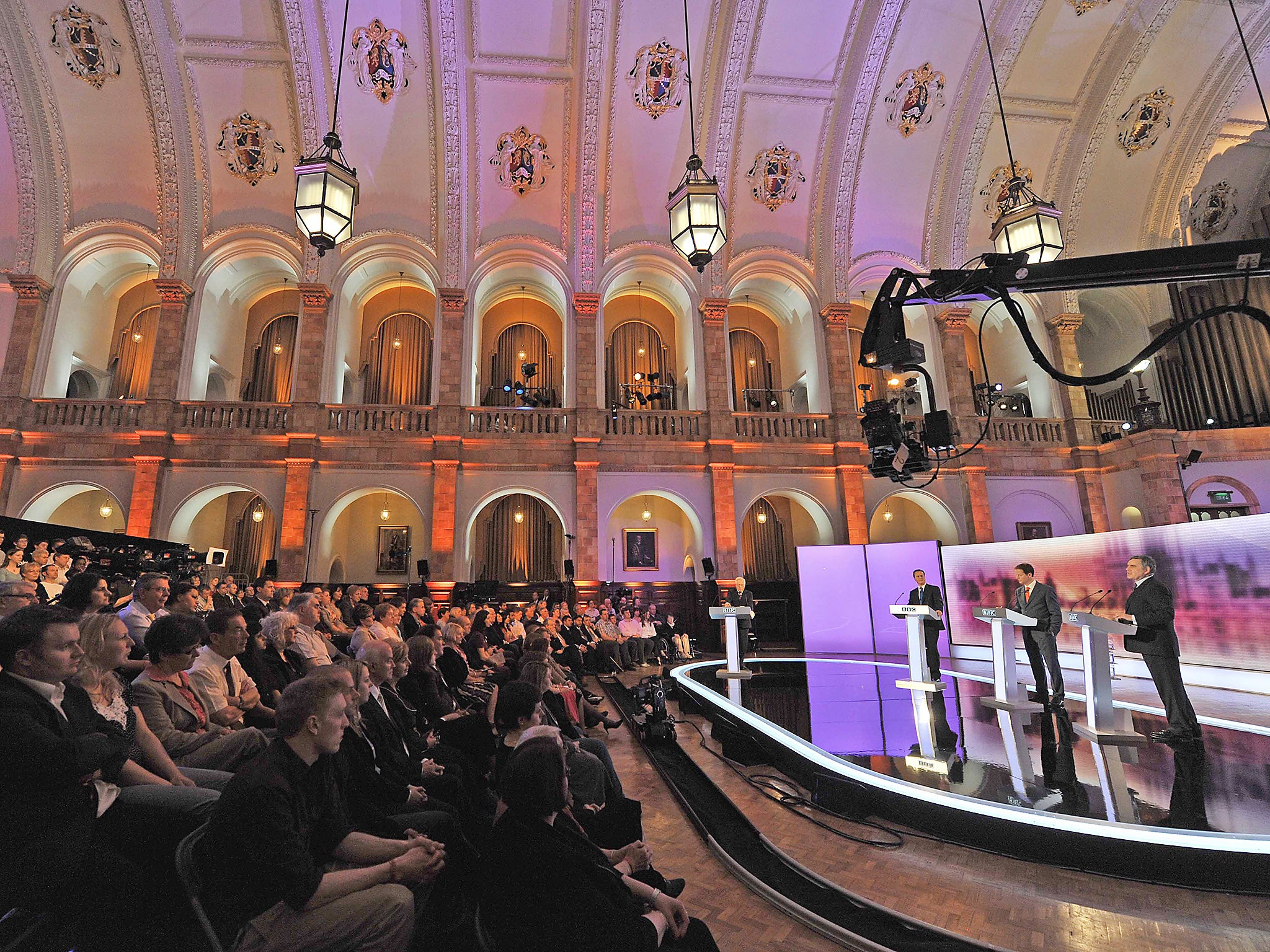By refusing TV debates during a general election campaign, Theresa May has admitted she has nothing to say to the British public
Presumably, the Prime Minister knows that her participation would mean more young people voting against her vision of a Tory hard Brexit

The first general election I could vote in was in 2010, and coincidentally, it was the first time that a debate between the main party leaders took place. I don’t think I’d even heard of the Lib Dems in 2010 – but then along came Nicky.
I was young and politically naive; he was smart, charismatic and offered to save me from crippling university tuition fees. He became my, and many other young people’s, political pin-up. Research by the Reuters Institute for the Study of Journalism showed that among 18 to 24-year-olds, “a special relationship [was formed] with the TV debates compared with more jaded older people”.
Politicians bemoaned a lack of political engagement from young people, and the rest of the country lamented the lack of choice between Labour and the Conservatives. The TV debates shook this up; they got young people into politics for the first time. Some 55 per cent of young people said they had helped them to make their minds up on voting. Certain areas reported increases of up to 17 per cent in the number of young people going to the ballot. Despite the Lib Dems overall electoral loss, at the time their inclusion in the TV debates revived what felt like a sclerotic political system.

The debates in 2015 were no different. All seven leaders from the UK’s main political parties went head-to-head, watched by seven million people. The general election felt exciting. I watched it with my family in Liverpool, wrestling the remote from my teenage cousin, changing the channel from Geordie Shore to the ITV debate. Notably, she didn’t leave the room. There wasn’t that much difference between the reality TV show and the savage put-downs between political personalities.
We weren’t the only ones getting involved. In 2015, 38 per cent of the electorate were influenced by the TV debates, outscoring newspapers and social media. Fourteen per cent more young people registered to vote, and the top reason given was the televised discussions. According to YouGov, newcomer to mainstream election coverage Nicola Sturgeon won the leaders’ debate with 28 per cent, followed by fellow outsider Nigel Farage.
The outcome was the SNP’s victory in all but three of Scotland’s 59 seats, making it the third largest party in the House of Commons. That was also the first time I remember discussing leaving the European Union with my family, following Farage’s Marmite performance. We need no other reminder of how powerful TV debates can be.
History tells us that a TV debate this time around would galvanise more young people to vote. According to a study by the LSE, 64 per cent of young people that were registered to vote cast their ballots in the referendum, with 75 per cent of them voting to remain in the EU. And 2017 has already been acknowledged to be a “Brexit election”.
Theresa May refusing to take part in TV debates around the general election amounts to her stating that she has nothing to say to the British public. Presumably, she knows – or highly suspects – that her participation would mean more young people voting against her vision of a Tory hard Brexit. With seven years passed and the Lib Dems’ tuition fee volte-face forgotten, it also means that she could come off a lot worse when directly facing down Tim Farron. No wonder she wants to stay clear.
Join our commenting forum
Join thought-provoking conversations, follow other Independent readers and see their replies
Comments
Bookmark popover
Removed from bookmarks